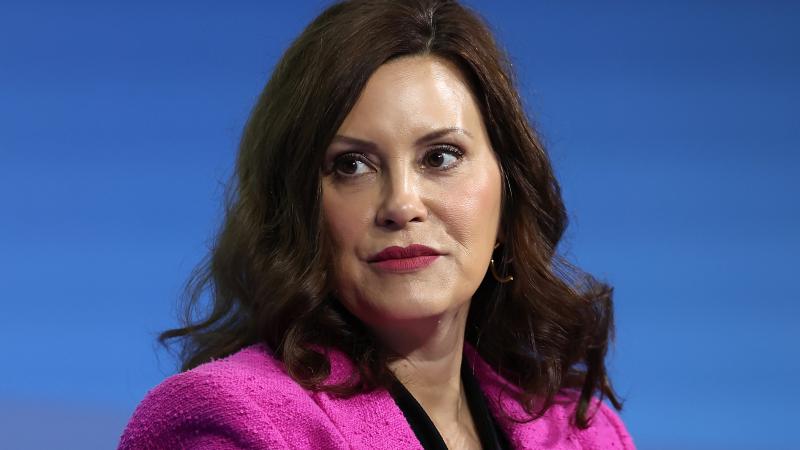Virginia's Youngkin blocks Ford battery plant over Chinese tech firm connection
"Let's develop our own technology," Gov. Glenn Youngkin said.
Virginia Gov. Glenn Youngkin is blocking his state from being considered for a Ford Motor Company battery plant over concerns the technology is supplied by a Chinese company.
Talking to reporters following his State of the Commonwealth speech, Youngkin criticized a clean energy push reliant upon technology “owned and dominated by the Chinese,” The Virginia Star reported.
“Well, we in fact felt that the recent efforts to put forward a Ford plant that would house Chinese technology to build the batteries was in fact representative of that. And that we felt the right thing to do was to not recruit Ford as a front for China to America. Let’s develop our own technology,” Youngkin said last Wednesday.
The Republican governor noted several concerns regarding China in his speech last week, as he called for state legislators to ban social media from selling data from minors and ban the sale of farmland to entities linked to the Communist Party of China. He also emphasized economic development victories for the Commonwealth, such as the relocations of Boeing and Raytheon to Virginia.
Youngkin's rejection of the battery plant followed Georgia Gov. Brian Kemp's announcement of major expansions of electric automotive manufacturing from Korean brands Hyundai and Kia. The Virginia governor has designated Georgia as one of the states that serves as a benchmark for economic performance.
Reporters asked Youngkin about his policy on investments with China while he was co-CEO of Carlyle.
“I think I’m uniquely positioned to understand how the Chinese Communist Party works. I dealt with them,” Youngkin said. “I’ve dealt with them, and I understand what they’re doing. They have one objective: global dominance at the expense of the United States.”
State Sen. Scott Surovell tweeted in response to Youngkin rejecting the battery plant, “Glenn Youngkin’s race to match Ron DeSantis' anti-China crusade just cost Virginia potential advanced manufacturing jobs.”
















